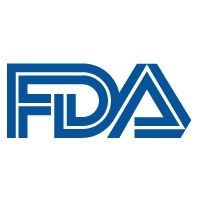Article
FDA Agrees to Review Pfizer's Supplemental New Drug Application for Xeljanz for the Treatment of Plaque Psoriasis
Author(s):
The FDA will review the sNDA for Xeljanz (tofacitinib citrate) tablets for the treatment of adult patients with moderate to severe chronic plaque psoriasis.

Pfizer Inc. recently announced that the US Food and Drug Administration (FDA) has accepted for review the company’s supplemental New Drug Application (sNDA) for Xeljanz (tofacitinib citrate) 5 mg and 10 mg tablets.
Xeljanz is a Janus kinase (JAK) inhibitor, the first in a new class of oral medicines being investigated for the treatment of adult patients with moderate to severe chronic plaque psoriasis who are candidates for systemic therapy or phototherapy.
According to Pfizer, the submission to the FDA “is based on data from the Phase 3 Oral treatment Psoriasis Trials (OPT) Program, a global, multi-study, comprehensive clinical development program that consisted of five studies (including an ongoing long-term extension study), designed to evaluate oral Xeljanz 5 mg and 10 mg twice daily in patients with moderate to severe chronic plaque psoriasis. With more than 3,600 adult psoriasis patients enrolled across 36 countries, the OPT program has yielded one of the largest databases for a potential psoriasis indication at the time of registration.”
Steve Romano, MD, SVP and Head, Global Medicines Development for the Pfizer Global Innovative Pharmaceutical business, said that this regulatory milestone demonstrates Pfizer’s commitment to “the research of chronic inflammatory diseases with the goal of developing therapies, such as Xeljanz, that can help address unmet medical needs for patients.”
Xeljanz, a small molecule that targets the JAK pathway (a signaling pathway inside the cells, thought to play a role in chronic inflammatory responses) was previously approved for the treatment of moderate to severe rheumatoid arthritis.
According to Pfizer, psoriasis is a chronic, immune-mediated inflammatory skin disease, affecting the skin and other parts of the body, such as nails. It affects approximately two-to-three percent of people worldwide and 7.4 million in the United States. Plaque psoriasis is the most common form of psoriasis, affecting about 80 percent of people who have psoriasis. As many as 20 percent have moderate to severe chronic plaque psoriasis.



